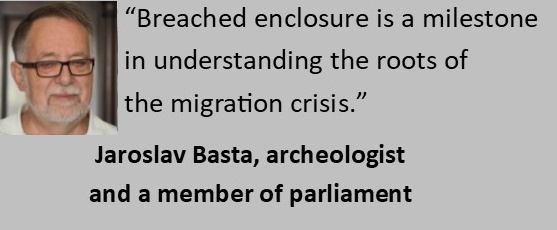Even in the old days, when the birth of empirical science was not yet in sight and people worshipped nature deities, they thought about the environment. They were concerned with such matters as whether there would be a fertile year, whether there would be a drought, whether there would be a flood, whether the winter would be too severe, and so on.
Their relationship to the environment had – among other things – two characteristics:
 First. They had demands on the environment. They wanted the winter to be mild, the rain to be just right, not too many insects, not too many mice, no storms…
First. They had demands on the environment. They wanted the winter to be mild, the rain to be just right, not too many insects, not too many mice, no storms…
Second. They believed that meeting those demands depended on their personal virtues. If they didn’t pray enough or drink too much alcohol or make sacrifices, they could expect storms, droughts, and other problems.
In the age of science and rationality, a different approach prevailed.
First. People no longer have demands on the environment, but try to adapt to it. Not enough rain? Let’s build irrigation canals. Temperatures dropping? Let’s switch to more resilient crops. Are the winters too hard. Let’s start insulating our homes better.
People no longer have demands on the environment, but try to adapt to it. Not enough rain? Let’s build irrigation canals. Temperatures dropping? Let’s switch to more resilient crops.
Second. People are interested in general laws – laws of physics, laws of nature, rules of behavior of particular ecosystems, etc. T] they reckon that those regularities work on their own, and that they are not the result of people’s personal virtues. If it’s a mild winter, there will be a lot of insects next year – no matter how many farmers are growing out of wedlock.
But that’s an attitude that’s over. The current official view is back to what it was in the original pre-scientific days.
First. The goal is not to adapt, but to get the planet to provide us with the climate we want.
Second. We get the planet to do this by giving up our sins. That is, the sin of convenience, the sin of driving, the sin of eating meat, the sin of procreation, the sin of fun, frolic and good cheer.
Will it work? It’ll work as well as the ancient sacrifice.
Will it work? It’ll work as well as the ancient sacrifice.
Georg Wilhelm Friedrich Hegel might be satisfied. There has been an exemplary realization of his “triad”. After the first phase (belief in deities), there was a second phase (science and rationality), and after that a sort of third phase that combines the two previous ones (irrational beliefs wrapped in a lot of seemingly scientific jargon). Except that this third stage is not the highest stage, but the stupidest stage ever to appear in human history.

